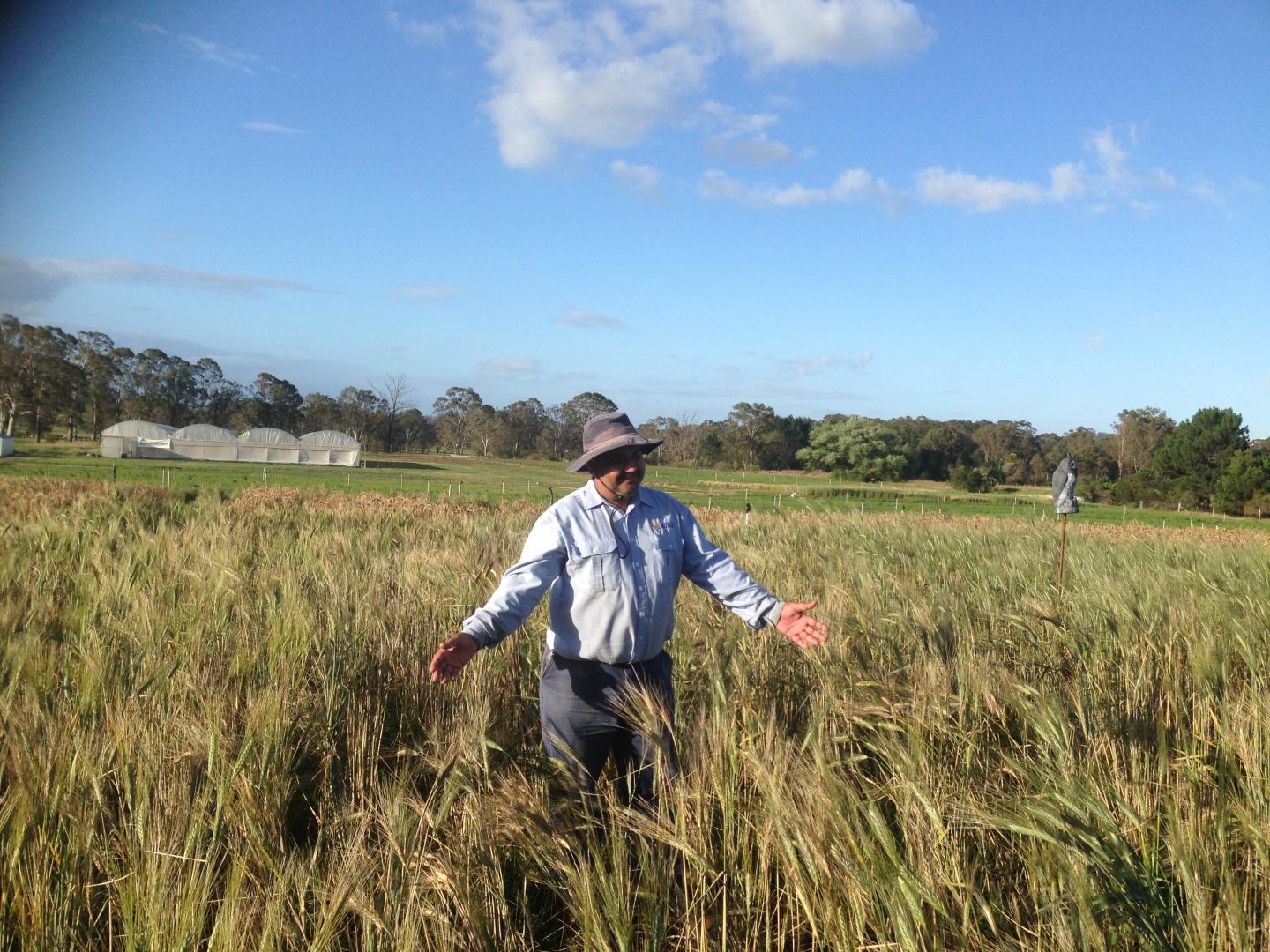
Plant Breeding Institute's Principal Research Fellow, Associate Professor Harbans Bariana, is demonstrating the issue of wheat rust. A gene that can prevent some of the most important wheat diseases has been identified--creating the potential to save more than a billion dollars in lost production in Australia alone each year.
In a global collaboration including the University of Sydney's Plant Breeding Institute (PBI), the CSIRO, CIMMYT (Mexico), University of Newcastle, Chinese Academy of Sciences and the Norwegian University of Life Sciences, the gene Lr67 has been identified as providing resistance to three of the most important wheat rust diseases, along with powdery mildew, a significant disease in Norway.
The findings, published today in Nature Genetics, should have wide-reaching ramifications, with wheat already providing a fifth of global caloric intake and set to spike in the next 50 years.
The University of Sydney has played a crucial role in this research through the Grains Research and Development Corporation (GRDC)-funded Australian Cereal Rust Control Program at PBI, which leads rust research to cater for the needs of Australian cereal breeding companies to release disease resistant varieties for farmers. The CSIRO and the University of Newcastle contributed molecular genetics skills to clone this naturally occurring gene that provides resistance to multiple pathogens of wheat.
Principal research fellow at the PBI, Associate Professor Harbans Bariana, said rust diseases are among the most significant constraints to global wheat production.
"Estimates put potential losses from wheat rust diseases in Australia alone at more than one-and-a-half billion dollars each year*,"
Associate Professor Bariana said. "The transfer of the gene Lr67 into modern wheat cultivars is already in progress at the University of Sydney component of the Australian Cereal Rust Control Program.
"Its transfer to future wheat varieties through marker assisted selection (MAS) based on this work will increase diversity for resistance," he said.
The University of Sydney has also been selected in an international consortium, among eight groups globally in the International Wheat Yield Partnership's first competitive call. The project is: 'Increasing carbon capture by optimizing canopy resource distribution'. Project lead is Richard Trethowan, University of Sydney; principal partners are: University of California, Davis and Agharker Research Institute.
Source: University of Sydney
 Print Article
Print Article Mail to a Friend
Mail to a Friend
